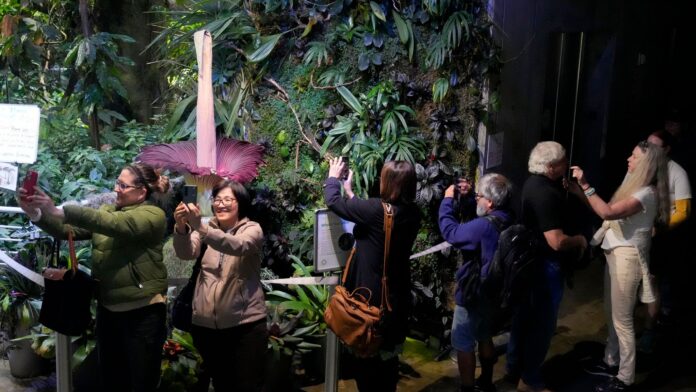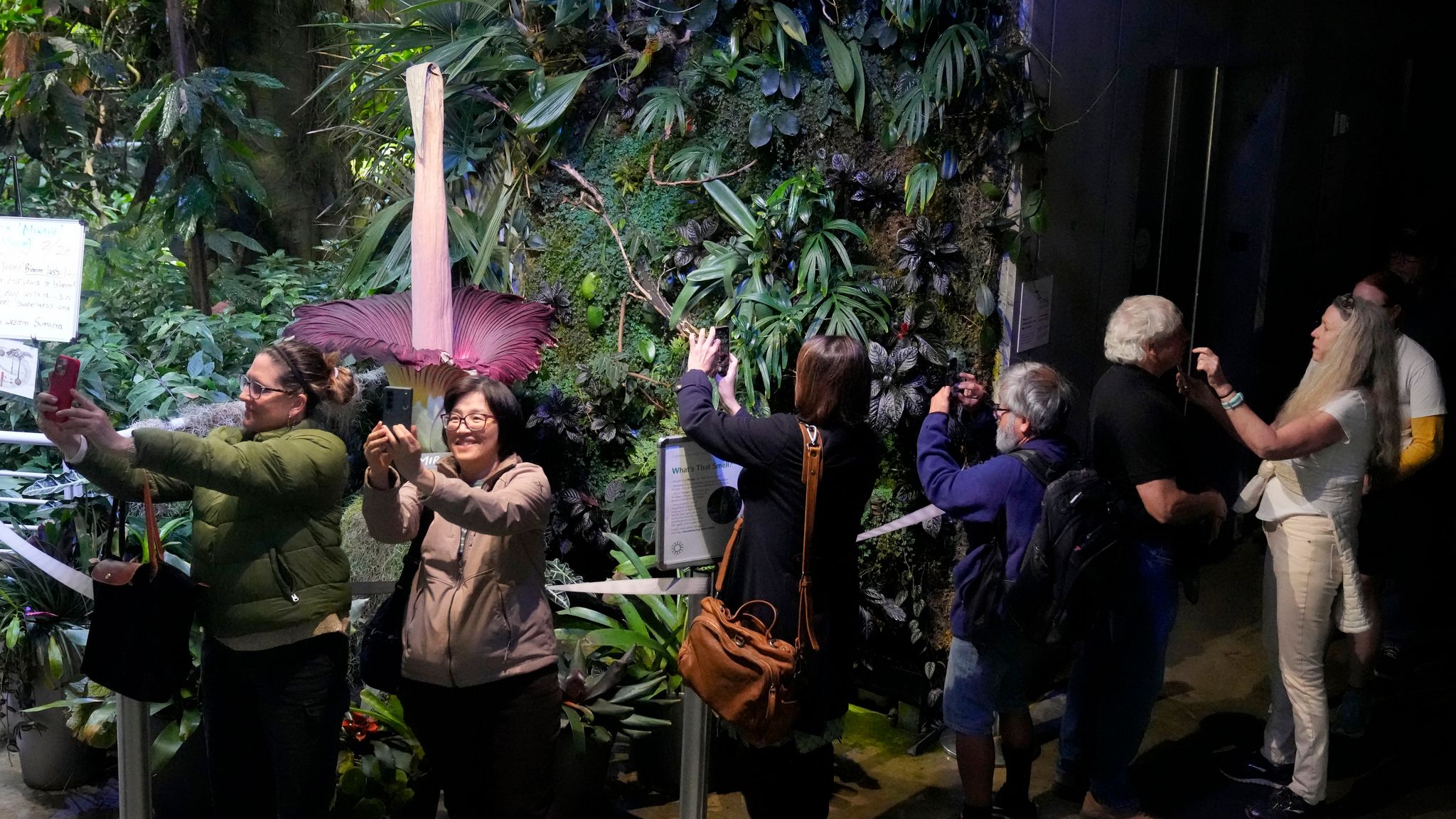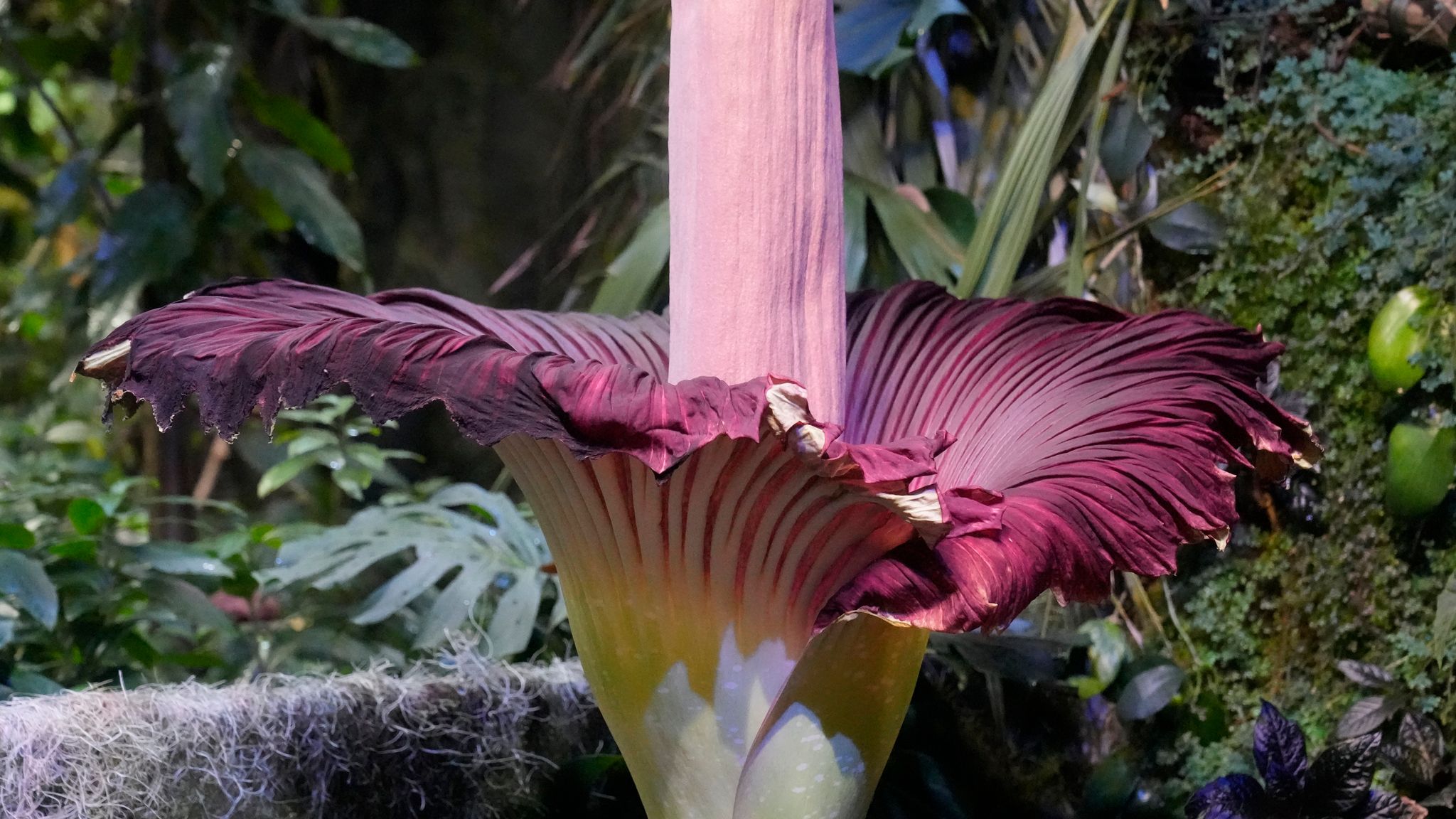People have lined up to get a whiff of the corpse flower – a plant that only blooms once every seven to 10 years.
The amorphophallus titanum gets its nickname from its stench, described by some as the smell of rotting flesh, though others detect hints of rotting food, sweaty socks or even garlic.
Crowds lined up at the California Academy of Sciences (CAS), a research institution and museum, on Wednesday as the endangered tropical flower bloomed, releasing the intense scent.
The corpse flower only blooms for one to three days despite taking up to a decade to do so.
Lauren Greig, a horticulturist from the CAS, which is in San Francisco, says the smell is essentially bad by design.
“It’s kind of imitating the smell of kind of a dead carcass to kind of get all the flies to come and interact with it, pick up pollen, and then take that pollen to another flower that it might investigate due to its smell,” she explained.
It was the first bloom for the corpse flower named Mirage, which was donated to the CAS in 2017. It’s been housed in the museum’s rainforest exhibit since 2020.
Read more:
Why Valentine’s Day roses may soon be a rarity
What if we didn’t have leap years? And what if you’re born on one?
Bri Lister, a data scientist who lives in San Francisco, moved some meetings and waited in line for about an hour to catch a whiff of the plant.
“In certain directions, I definitely picked up on the sweaty socks, sweaty gym clothes, but probably luckily not full-on rotting meat, but definitely a smellier plant than average,” Mr Lister said.
Monica Becker took her child out of school to see the flower in person after watching it on the academy’s livestream.
“When we heard it bloomed, we were like… we got to go, first thing in the morning when they open. So here we are,” Ms Becker said.
“I smelled sweaty feet, sort of sweet, pungent… kind of like your shin guards after soccer,” she joked, turning to her child.
The amorphophallus titanum is native to the Indonesian island of Sumatra. It is listed as endangered by the International Union for Conservation of Nature, with only less than 1,000 individual plants left in the wild.
Source : Sky News








